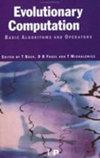When Hillclimbers Beat Genetic Algorithms in Multimodal Optimization
IF 3.4
2区 计算机科学
Q2 COMPUTER SCIENCE, ARTIFICIAL INTELLIGENCE
引用次数: 4
Abstract
This article investigates the performance of multistart next ascent hillclimbing and well-known evolutionary algorithms incorporating diversity preservation techniques on instances of the multimodal problem generator. This generator induces a class of problems in the bitstring domain which is interesting to study from a theoretical perspective in the context of multimodal optimization, as it is a generalization of the classical OneMax and TwoMax functions for an arbitrary number of peaks. An average-case runtime analysis for multistart next ascent hillclimbing is presented for uniformly distributed equal-height instances of this class of problems. It is shown empirically that conventional niching and mating restriction techniques incorporated in an evolutionary algorithm are not sufficient to make them competitive with the hillclimbing strategy. We conjecture the reason for this behavior is the lack of structure in the space of local optima on instances of this problem class, which makes an optimization algorithm unable to exploit information from one optimum to infer where another optimum might be. When no such structure exists, it seems that the best strategy for discovering all optima is a brute-force one. Overall, our study gives insights with respect to the adequacy of hillclimbers and evolutionary algorithms for multimodal optimization, depending on properties of the fitness landscape.当登山者在多模式优化中击败遗传算法时。
本文研究了多部分下一次爬坡和结合多样性保持技术的著名进化算法在多模式问题生成器实例中的性能。该生成器在比特串域中引发了一类问题,在多峰优化的背景下,从理论角度研究这类问题很有趣,因为它是对任意数量峰值的经典OneMax和TwoMax函数的推广。针对这类问题的均匀分布等高实例,给出了多部分下一次爬坡的平均情况运行时间分析。经验表明,传统的小生境和交配限制技术结合在进化算法中不足以使其与爬山策略相竞争。我们推测这种行为的原因是该问题类实例的局部最优空间中缺乏结构,这使得优化算法无法利用一个最优的信息来推断另一个最优可能在哪里。当不存在这样的结构时,发现所有最优的最佳策略似乎是暴力策略。总的来说,我们的研究根据适应度景观的特性,深入了解了登山者和进化算法在多模式优化中的充分性。
本文章由计算机程序翻译,如有差异,请以英文原文为准。
求助全文
约1分钟内获得全文
求助全文
来源期刊

Evolutionary Computation
工程技术-计算机:理论方法
CiteScore
6.40
自引率
1.50%
发文量
20
审稿时长
3 months
期刊介绍:
Evolutionary Computation is a leading journal in its field. It provides an international forum for facilitating and enhancing the exchange of information among researchers involved in both the theoretical and practical aspects of computational systems drawing their inspiration from nature, with particular emphasis on evolutionary models of computation such as genetic algorithms, evolutionary strategies, classifier systems, evolutionary programming, and genetic programming. It welcomes articles from related fields such as swarm intelligence (e.g. Ant Colony Optimization and Particle Swarm Optimization), and other nature-inspired computation paradigms (e.g. Artificial Immune Systems). As well as publishing articles describing theoretical and/or experimental work, the journal also welcomes application-focused papers describing breakthrough results in an application domain or methodological papers where the specificities of the real-world problem led to significant algorithmic improvements that could possibly be generalized to other areas.
 求助内容:
求助内容: 应助结果提醒方式:
应助结果提醒方式:


